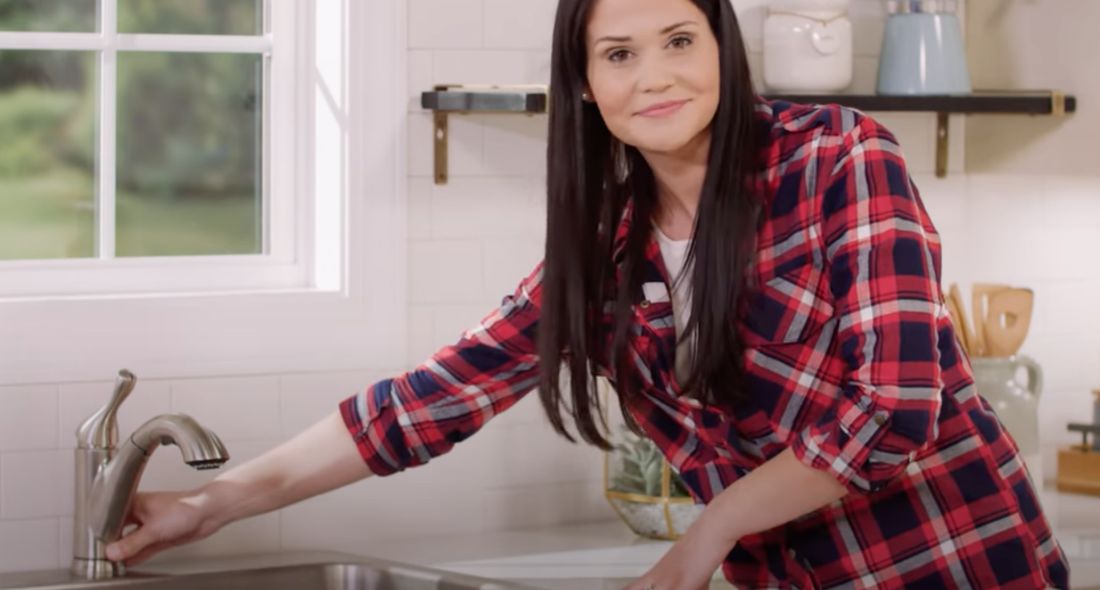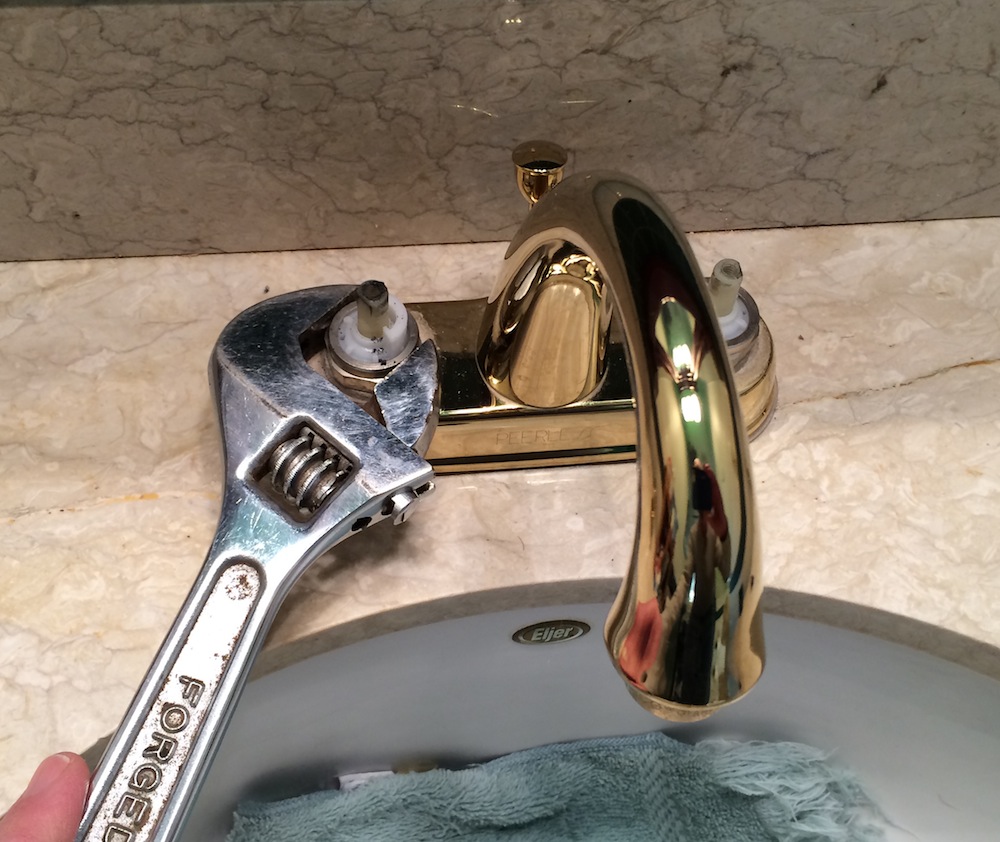They are making several good points related to Leaky Faucets: Why They Happen & What to Do About Them as a whole in this great article below.

Dripping faucets may feel like a minor hassle, however their effect exceeds simply the inconvenience of the noise. From drainage to sustaining unneeded economic prices and health risks, ignoring a dripping faucet can result in different consequences. In this article, we'll delve into why it's essential to address this common household issue quickly and efficiently.
Wastage of Water
Environmental Impact
Dripping faucets add substantially to water waste. According to the Environmental Protection Agency (EPA), a single faucet trickling at one drip per secondly can throw away greater than 3,000 gallons of water annually. This not only strains water resources yet also affects ecosystems and wildlife dependent on them.
Financial Costs
Boosted Water Costs
Past the ecological effect, trickling taps can blow up water costs substantially. The built up wastage over time converts right into higher utility expenditures, which can have been stayed clear of with timely repair work.
Potential Home Damage
In addition, extended leaking can lead to harm to components and surfaces bordering the faucet. Water buildup can trigger staining, deterioration, and also structural concerns if left ignored, resulting in added repair work costs.
Wellness Issues
Mold And Mildew and Mildew Development
The constant visibility of wetness from a trickling faucet develops a suitable environment for mold and mildew and mildew development. These fungi not only endanger indoor air top quality however additionally position wellness dangers, specifically for individuals with respiratory system conditions or allergic reactions.
Waterborne Diseases
Stagnant water in trickling faucets can end up being a breeding ground for germs and various other pathogens, boosting the risk of waterborne illness. Impurities such as Legionella germs prosper in stationary water, possibly resulting in major ailments when ingested or inhaled.
Do it yourself vs. Professional Repair service
Pros and Cons of DIY Fixing
While some might try to take care of a trickling faucet themselves, DIY fixings come with their very own set of obstacles. Without proper expertise and devices, DIY attempts can intensify the problem or bring about incomplete repair work, extending the trouble.
Advantages of Hiring an Expert Plumber
Employing a specialist plumber makes certain that the underlying cause of the trickling tap is addressed effectively. Plumbing technicians have the expertise and equipment to diagnose and repair faucet issues effectively, saving time and reducing the danger of additional damage.
Step-by-Step Guide to Taking Care Of a Dripping Faucet
Tools Needed
Before attempting to repair a leaking faucet, gather the necessary tools, consisting of a flexible wrench, screwdrivers, replacement parts (such as washers or cartridges), and plumber's tape.
Common Faucet Issues and Their Solutions
Identify the kind of faucet and the particular issue triggering the drip. Common problems consist of worn-out washers, corroded shutoff seats, or damaged O-rings. Describe maker directions or on the internet tutorials for step-by-step guidance on repairs.
Safety nets
Normal Maintenance Tips
To stop trickling taps, carry out routine upkeep such as cleaning up aerators, examining for leaks, and changing damaged parts promptly. In addition, think about installing water-saving tools or updating to more efficient fixtures.
Importance of Prompt Repairs
Resolving trickling taps as quickly as they're noticed avoids further water wastefulness and possible damages, ultimately conserving both water and money in the long run.
Influence On Building Worth
Perception of Well-Maintained Property
Keeping a property in good condition, consisting of dealing with upkeep problems like dripping taps, enhances its viewed value and worth among possible buyers or lessees.
Influence on Resale Value
Features with well-kept plumbing components, including taps, command higher resale worths in the property market. Dealing with trickling faucets can add to a favorable impression throughout residential property inspections and settlements.
Ecological Responsibility
Private Payment to Conservation
Taking obligation for dealing with dripping faucets straightens with broader efforts towards water conservation and environmental sustainability. Every person's activities collectively make a considerable influence on preserving precious resources.
Lasting Living Practices
By focusing on punctual repairs and embracing water-saving routines, people contribute to sustainable living methods that profit both existing and future generations.
Verdict
Addressing a dripping faucet exceeds simple ease; it's an essential step toward saving water, lowering financial costs, and protecting health and wellness and residential property. Whether via do it yourself repairs or professional support, doing something about it to repair trickling faucets is a little yet impactful method to advertise liable stewardship of sources and add to a healthier, a lot more sustainable future.
How to Fix a Leaky Faucet: Step-by-Step Repair Guide
A leaky faucet may seem like a simple annoyance, but if it's not fixed promptly, that leak could cost hundreds to potentially thousands. From water damage to mold, mildew, and high water bills, even a tiny leak can be catastrophic if left unattended. Damage like this can even affect the overall value of your home, so it's important to take the right approach for leaky faucet repair. You may need the help of a plumber in some cases, but we've got a few tips you can try on how to fix a leaky faucet before calling the pros.
Four Faucet Types
When you're learning how to fix a leaky faucet, the first step is knowing what kind of faucet you're working with! There are four common types.
Cartridge Faucets
Cartridge faucets come in one- or two-handled varieties. In one-handled cartridge faucets, hot and cold water combines in a single cartridge. In the two-handled versions, hot and cold water are controlled separately and mixed in the faucet.
Ball Faucets
Ball faucets have a single lever you push up and down to adjust the pressure and rotate to change the temperature. A slotted metal ball controls the amount of water allowed into the spout.
Compression Washer Faucets
They're the oldest type of faucet, but they're still used in many homes — especially older ones. Compression faucets have two separate handles that, when turned, raise or lower the washer that seals a water valve. This valve stops water from flowing through the faucet when it is turned off.
Disc Faucets
Disc faucets rarely need to be repaired due to their maintenance-free design. The water flow is controlled by two discs — the upper one raises and lowers against a fixed lower disc, creating a watertight seal. If your disc faucet starts leaking, you may need to replace the seals or clean residue buildup from the inlets.
Fixing a Leaky Faucet
Step 1: Turn Off the Water
Whether you're learning how to fix a leaky bathtub faucet or how to fix a leaky kitchen faucet, always turn off the water supply to your working area when you're fixing a leak. The last thing you want is a flood added to your list of things to fix.
Look for the shutoff valves below your sink or around the tub and turn them clockwise to stop the water flow. If your faucet doesn't have shutoff valves, you may need to turn off the water for the whole house. Check to make sure it's off by turning the faucet on. If nothing comes out, you're ready to start the repair.
Step 2: Take Apart the Faucet
How you disassemble your faucet depends on the type of fixture you have. You can use a flathead screwdriver to remove the caps on top of the handle or handles for cartridge and compression faucets. Inside, you should see handle screws. Unscrew these with a screwdriver to remove the handle.
Disc- and ball-style faucets will typically have an inlet screw near the handle, and removing that will reveal the interior of the faucet.
Detach the Valve Stem
For cartridge- and compression-style faucets, you'll see the inner valve stem or cartridge once you remove the faucet handles. If you have a compression faucet, unscrew the brass valve stem. If you have a cartridge faucet, pull out the cartridge. If your cartridge has been in place for a while, it may require some tools or extra force to remove it due to mineral deposits.
Examine and Replace Parts
Once you've removed the parts, check them out to confirm what needs to be replaced. You may see corroded rubber washers, O-rings, stems, or cartridges. On a ball-style faucet, check the seats and springs for damage.
If you need to repair a leaky disc faucet, check the inlet and seals on the lower disc.
Once you determine what parts must be replaced, visit your local hardware store. Bring the damaged parts with you to ensure you can purchase the correct components to replace them.
Clean Valves and Faucet Cavity
If you've removed a stem or cartridge, you may notice mineral buildup in the faucet's threads. Use white vinegar to clean the valve seat by soaking it for a few minutes, then scrub it away with a soft toothbrush and rinse with warm water. You can also clean the interior of the faucet in the same way.
Reassemble the Faucet
Once your faucet is cleaned and the required parts have been replaced, it's time to reassemble it. Put the pieces back together and slowly turn the water supply back on. Doing this slowly is crucial because too much initial water pressure can damage the new hardware you've just installed.
https://homewarranty.firstam.com/blog/how-to-fix-leaky-faucet

Do you enjoy reading about ? Leave a remark down the page. We would be glad to see your thoughts about this blog. We hope to see you back again in the future. Those who enjoyed our blog posting plz don't forget to share it. Thanks so much for going through it.